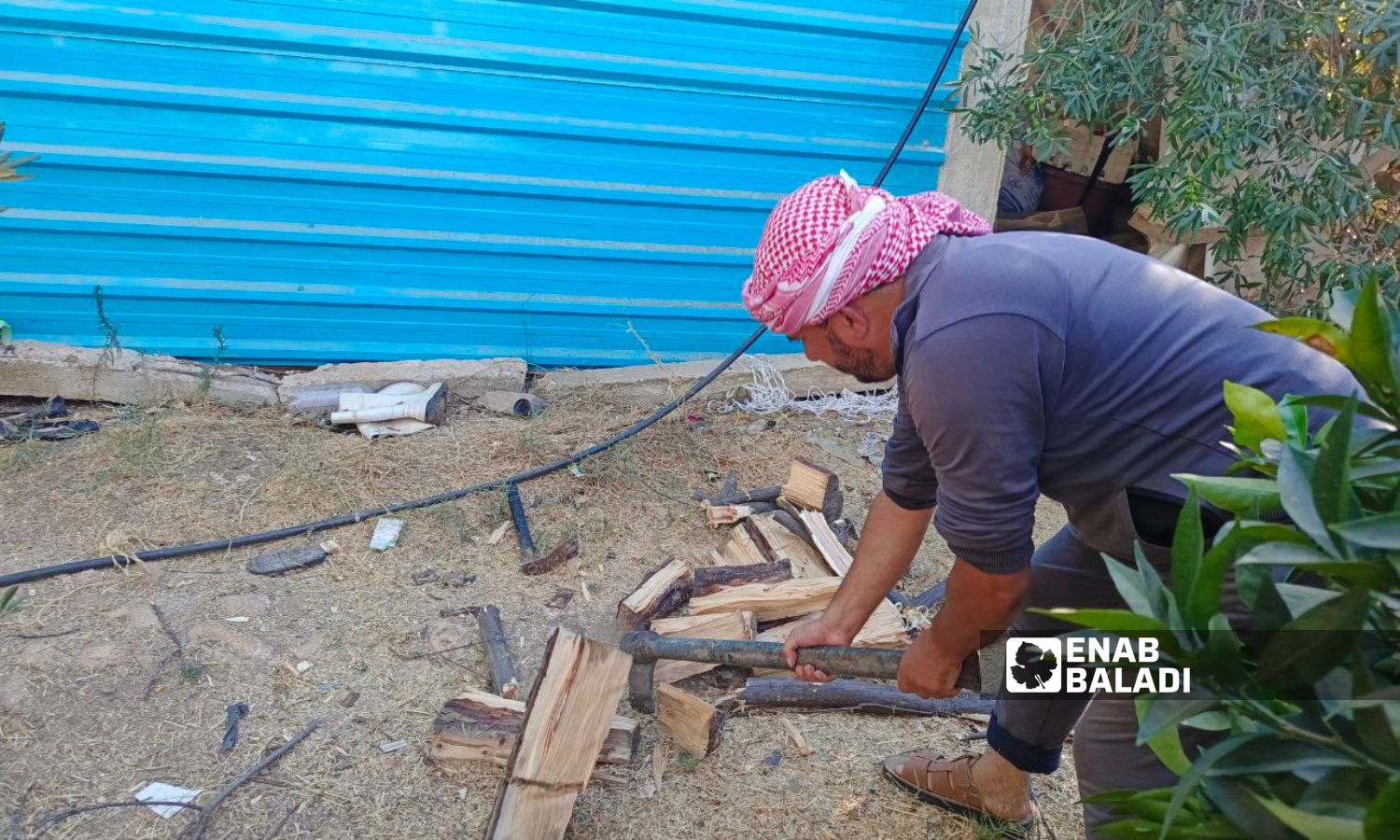



Daraa – Halim Muhammad
Early in the morning, Muhammad (28 years old) drags his donkey, carrying his axe, and heads to the Yarmouk Valley in the western countryside of Daraa province in southern Syria. He searches for firewood from branches of wild fig, carob, or sidr trees, or eucalyptus roots.
Muhammad collects approximately 100 kilograms daily, aiming to secure three tons of firewood to heat his home during the upcoming winter season.
For Muhammad, collecting firewood is currently a means to secure winter fuel at the lowest possible cost. He works in agriculture for a daily wage of 30,000 Syrian pounds (2 dollars), while the price of one ton of firewood reaches tens of times that amount.
The man has stopped working and is fully dedicated to securing a stockpile of firewood before winter arrives. He says he would need five million pounds if he decided to buy firewood from the market.
Next to Muhammad in the Yarmouk Valley, dozens of people are seen gathering tree branches to secure heating methods in preparation for the coming winter season.
Others resort to available methods such as drying animal dung or buying diesel for those who can afford it. Meanwhile, electricity cannot be relied upon due to prolonged power rationing.
The price of firewood varies depending on its type and level of dryness. The price of a ton of olive or oak wood reaches three million Syrian pounds (200 US dollars), while a ton of eucalyptus wood costs 2.3 million pounds (156 US dollars).
The price of grape, cypress, or pomegranate wood drops to 1.5 million pounds per ton, but this comes at the expense of quality.
As for gas, the price of a cylinder in the local market has reached 400 thousand Syrian pounds (27 dollars). Most residents cannot rely on electric heaters as the electricity is weak and intermittent for one hour against five hours of power cuts.
Atif, from the town of Tal Shihab, has resorted to digging around previously chopped trees to extract firewood from the roots. He describes the process as laborious but necessary to secure firewood.
The forty-something-year-old man collects around 50 kilograms daily. He says root wood burns well, though it consists of large masses that are difficult to chop.
Nisreen (30 years old), from the town of Jalin in the western countryside of Daraa, has found a helpful resource in making “jallah” (dried animal dung) to reduce firewood consumption.
Nisreen prepares the “jallah” from her cows’ waste, shaping it into circular molds over the past months and exposing them to sunlight. She now packs and stores them in the barn for winter use.
Nisreen estimates that she has produced 500 kilograms, which is not sufficient for heating alone but will supplement the remaining shortage by buying firewood from the local market.
Abdul Karim, residing in Tal Shihab, relies on diesel for heating as his wife suffers from a lung condition and cannot tolerate wood stove fumes.
Abdul Karim awaits the delivery of his 50 liters of subsidized diesel allocated by the Fuel Directorate at a price of 2,000 pounds per liter. He also holds a card for his son, who lives with him.
He says his entire family gathers near the heater in the evenings. Despite needing more than one heater, they only have one in their home.
After harvesting olives, Abdul Karim plans to complete purchasing the required diesel for his family for the winter season.
He estimates his family’s need to be 400 liters, which means he will pay for 300 liters at a cost of nearly five million pounds. His need for firewood would be two tons at nearly the same price.
The price of diesel in the local market has reached 16,000 pounds per liter and did not exceed 10,000 pounds last winter.
The regime’s Ministry of Oil and Mineral Resources has set the date for registering for subsidized heating diesel on September 25th, stating that delivery of citizens’ allocations will begin on October 1st.
The family’s share of subsidized heating diesel is 50 liters as a first installment, with no clarity on whether there will be additional installments.
if you think the article contain wrong information or you have additional details Send Correction